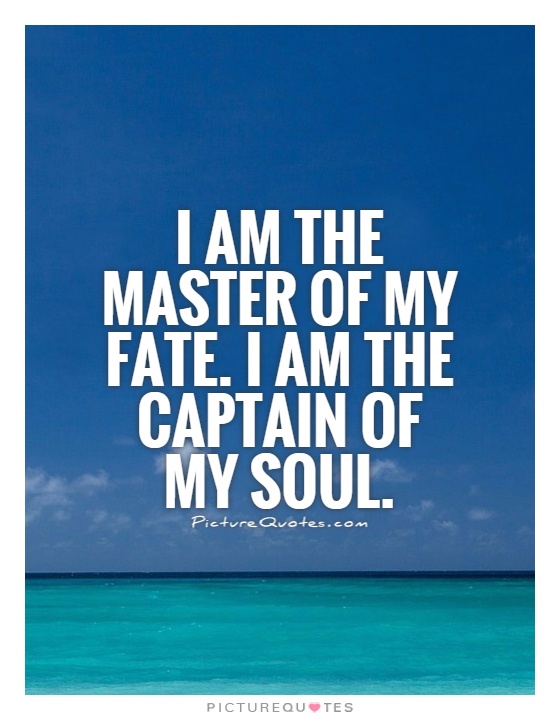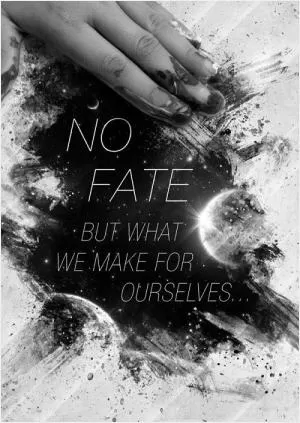I am the master of my fate. I am the captain of my soul

I am the master of my fate. I am the captain of my soul
William Ernest Henley's famous poem "Invictus" is a powerful declaration of resilience and determination in the face of adversity. The closing lines of the poem, "I am the master of my fate. I am the captain of my soul," have become iconic and are often quoted as a source of inspiration and motivation.Henley wrote "Invictus" in 1875 while he was recovering from a serious illness that resulted in the amputation of one of his legs. Despite his physical suffering, Henley's spirit remained unbroken, and he found solace in the belief that he had control over his own destiny. The poem reflects his unwavering determination to overcome his challenges and emerge stronger than before.
The lines "I am the master of my fate. I am the captain of my soul" encapsulate the idea that we have the power to shape our own lives and determine our own destinies. Henley's use of the word "master" suggests a sense of authority and control, while "captain" evokes the image of a leader guiding a ship through stormy waters. Together, these words convey a sense of agency and autonomy, emphasizing the importance of taking ownership of one's choices and actions.












 Friendship Quotes
Friendship Quotes Love Quotes
Love Quotes Life Quotes
Life Quotes Funny Quotes
Funny Quotes Motivational Quotes
Motivational Quotes Inspirational Quotes
Inspirational Quotes